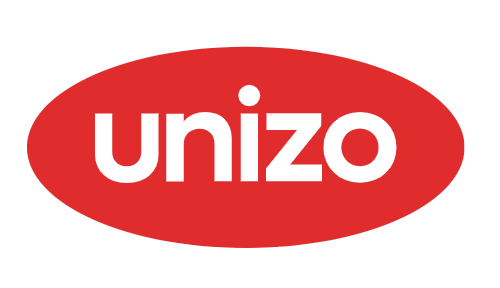Do you like driving? Does chauffeuring appeal to you? Do you dream of making a career out of it and becoming self-employed in a driving-related trade, either as your main activity or as a sideline? Whether you are taking your truck and goods out on the motorways, or welcoming passengers to Brussels in a taxi, here is where you will find explanations and websites to consult for jobs in the sector.
Transport of goods
Anyone entering the road haulage sector is subject to European and Belgian rules when the vehicle - often a truck - is loaded with more than 500 kg.
The Federal Public Service Mobility and Transport explains the rules and administrative procedures for taking up this activity step by step on their federal website.
1. Access to the profession
The carrier must have access to the profession of carrier. To obtain it, four conditions must be met:
- To get the "professional competence" certificate from FPS Mobility et Transport, a company needs to pass the professional aptitude exam organized by the official accredited body, ITLB (Belgian Road Transport and Logistics Institute). The company has to assign a "transport manager" to oversee the operations..
- It is necessary for the company to establish a legitimate and efficient business location in Belgium, which serves as the administrative and technical hub for its transportation operations.
- The company and its transport manager must demonstrate they have a clean driving record without serious offenses. This requirement is known as the good-repute condition.
- Proof of financial capacity is required, with joint and several guarantees of EUR 9,000 for the first vehicle and EUR 5,000 for subsequent vehicles.
Access to transporting goods via public road as a profession is regulated by European Regulation (EC) 1071/2009 and the Belgian Law of July 15, 2013 concerning road transport, along with its related decrees.
2. Transport licence
Any individual or company wanting to work as a transport operator must apply for a transport licence, i.e. an original licence (to be kept at the company's head office) and one or more copy licences for each vehicle (truck, van, tractor, etc.) used for paid transport on behalf of third parties.
If it meets the required conditions, the company receives a national licence (which allows it to carry out the paid transport of goods exclusively on Belgian territory), or a Community licence (which will enable it to carry out, throughout the territory of the European Union and in Switzerland, Iceland, Norway, Liechtenstein and the United Kingdom).
3. Driver's certificate
In some instances, a driver needs a driver's certificate. When a Community transport license covers the vehicle, the company should give its driver this certificate. A copy of the certificate, issued alongside the original, must be stored at the company's main office.
The certificate is issued to the company and a particular driver, so it can't be transferred to another party. It's valid for up to one year.
4. Intermediairy
If there is a transport intermediary, principal, loader, freight forwarder or forwarding agent, they have specific responsibilities. The FPS website provides full explanations of these roles and their responsibilities.
You should also know about any helpful or necessary insurance for your job. Besides the federations (like FEBETRA, which provides a customized insurance plan), you can reach out to an insurance broker to protect yourself from the risks linked to your profession.
Useful contacts
- In Belgium, there are at least three professional federations in the freight transport sector. The idea of merging them has been discussed but has not happened yet.
- FEBETRA: Royal Belgian Federation of Transporters and Logistics Service Providers
- info@febetra.be
- +32 2 421 51 80
- UPTR: Professional Transport and Logistics Union
- info@uptr.be
- + 32 2 361 40 90
- TLV: Transport en Logistiek Vlaanderen
- info@tlv.be
- +32 9 210 82 10
- FPS Mobility and Transport
- Transport of goods on behalf of third parties
- Marchandises.route@mobilit.fgov.be
- + 32 2 277 48 52 (between 1 and 4pm)
- Extra-Community transport permits (outside the European Union)
- route.international@mobilit.fgov.be
- +32 2 277 48 53 or +32 2 277 36 63 (between 1 and 4pm)
- Driver certificates
- route.international@mobilit.fgov.be
- + 32 2 277 48 53 (between 1 and 4pm)
- Transport of goods on behalf of third parties
- FEBETRA: Royal Belgian Federation of Transporters and Logistics Service Providers
Passenger transport
Recent changes
Taxi services were reformed at the end of October 2022. You will find details of the changes in the Taxi Reform Circular.
Here is a summary of the changes made and the main rules to be aware of (some points are detailed in the following headings):
- the reform has unified the taxi sector and created a common status for station taxis ('classic taxis') and street taxis (formerly known as limousines/CDHs).
- there is a maximum number of taxis for each category, with a waiting list.
- booking intermediaries who dispatch fares must now be approved, which was not the case before.
- online management platform: all professionals in the passenger transport sector in Brussels must use a new platform to manage their files and administrative procedures. This applies to operators of taxis, specialised regular transport (SRT), shared mobility (freefloating/bike sharing), and drivers and driver candidates. Explanations in this video.
- access to the taxi driver profession has been reviewed and simplified. See below.
- the certificate of competence is issued for an indefinite period and every five years a refresher' course is required.
- taxi companies must provide the names of their drivers to the authorities
- vehicles can be up to seven years old (or eight years old for PRM and zero-emission vehicles).
- all communication to and from the Administration must be by electronic means only. Applications sent by any other means will not be accepted. You can send your email address to taxi@sprb.brussels.
- taxi operators are liable for an annual and indivisible tax of €600 per identification vignette. Holders of a reservation intermediary license must pay a tax of 20 euros per registered vehicle (amounts adjusted annually).
The procedure for becoming a taxi driver has been simplified. You can find the procedure on the FPS Mobility and Transport website.
To become a taxi driver, you need a certificate of competence, details of which can be found in this video and on the detailed page on Brussels Mobility.
To apply for a certificate of competence, you will need to provide the following documents:
- an extract of the police record (the character requirement has been relaxed)
- a document attesting to a minimum command of French and/or Dutch, which must be at least A2 level
- a copy of driving licence B obtained at least two years ago (previously three years ago)
- a certificate of medical fitness
- a passport photo
- for non-EU nationals, the document authorising you to work in Belgium
- proof of payment of the fee (75 EUR)
The application for a certificate of competence must be submitted via the regional platform (citizen community).
You must also pass the selection tests, or provide proof of two years' experience in the five years preceding the entry into force of the new regulations (i.e. between 21/10/2017 and 20/10/2022) as a driver in a chauffeur-driven car rental service.
The certificate of competence is valid for an indefinite period, but a periodic refresher is compulsory every five years, and must be undertaken on your own initiative. This video explains how to do this. You will need to provide the authorities (taxi@sprb.brussels) with the following documents: a new extract of the criminal record, a new certificate of medical fitness and proof of authorisation to work in Belgium if the person is a national of a non-EU country.
Keep up to date: Brussels Mobility sends out a monthly newsletter to all taxi drivers in Brussels. Sign up here if you would like to receive it.
Texts in force for taxi services:
- Ordinance of 9 June 2022 on taxi services
- The Decree of 6 October 2022 of the Government of the Brussels-Capital Region on taxi services (PDF) (1.34 Mo)
- The decree of 6 October 2022 of the Government of the Brussels-Capital Region on the sub-categories of taxi services and the quotas and rates applicable to them.
Taxi company operators
To work in Brussels (pick up and drop off a customer on the territory of the Brussels-Capital Region), a taxi must hold a permit to operate one or more vehicles, depending on the number of authorised vignettes.
To request a permit, and therefore vignettes, please complete this form.
Permits can only be issued to a natural person. They are named and do not belong to the company. Taxi company operators must inform the authorities of the identity of their drivers before their contracts come into force.
Only one permit may be issued per operator. Permits are issued for a renewable period of seven years. More information on the Brussels Mobility website under "Taxi operators".
To be considered a self-employed taxi driver, you must be either the permit holder or the manager or director (= representative) of the company holding the permit. The other drivers will be presumed to be salaried employees.
Consequently, it's not possible to work as a taxi driver while being an active partner in a licensed company. Since this individual isn't the manager or director, they can't operate as an independent taxi driver. If a problem arises, this would result in a reclassification to an employee status, and the company would need to cover the overdue personal contributions to FPS Social Security.
An active partner in the company who wants to be a driver must either have a salaried employment contract or be appointed as a director of the company.
Uber drivers in Brussels
Uber requires drivers to be self-employed and have a vehicle, insurance and a licence from Brussels Mobility. You can find out how to become an Uber driver on their website.
In recent years, Uber vehicles have created a new dynamic in mobility in Brussels. The number of Uber users is growing, and it brings joy to some individuals; at the same time, taxi federations are complaining of unfair competition, especially in Brussels, where some Uber cars have obtained their licence in Flanders or Wallonia (more easily than in Brussels). The problem is complex.
Specialised regular transport (SRT)
Schools, homes, shopping centres and other places wanting to set up regular or occasional bus or coach transport services (shuttles, school pick-ups, etc.) must apply to Brussels Mobility for a permit.
More information and forms for each type of specialised transport.
PRM taxis
More and more vehicles are being fitted out to transport people with reduced mobility. There is a list of 'PRM' taxis with the vehicle's specific features (such as the ability to fit a wheelchair). More Information.
People with reduced mobility can apply for taxi vouchers, which allow them to pay for a journey at a reduced price. Other useful information here.
Brussels Economy and Employment helps with the purchase of an adapted vehicle under certain conditions.
Buses and coaches
You can find more information the FPS Mobility and Transport website.
Contact at FPS Mobility and Transport: David Van Humbeek on +32 2 277 38 15 or by email voyageurs.route@mobilit.fgov.be.
Useful contacts
- Self-employed status: click here to see the administrative procedures for becoming self-employed. Don't forget that it is advisable to receive support before taking on this status. Contact us in that case. We provide free information and guidance? You may also consult our tool "Who can help me?".
- Brussels Mobility is available by telephone, free of charge on 0800 94 001 or 02/204 18 53.
- Brussels Mobility's taxi department has a physical counter for receiving and managing files. The counters are open to the public on Mondays, Tuesdays, Thursdays and Fridays from 9am to 12pm, and on Thursdays from 1.30 pm to 3.30 pm. Address: CCN - Rue du Progrès 80 - 1035 Brussels
- The FPS Mobility website has a wealth of information that is helpful to the road transport industry, including details about passenger rights, driving and rest intervals, registration, and road safety.
- GTL-taxi is the French acronym for the National Association of Taxi and Limousine Companies. Established in 1964, this is a professional organisation. Representatives from every corner of the nation make up GTL-Taxi, which consists of independent contractors and businesses with salaried staff. Its goals are to promote the cab and chauffeur-driven rental car sectors while defending the interests of the profession. The website contains information on all applicable municipal, state, and federal laws. Get in touch here.
- SIEP: on this site, you will find explanations of several professions linked to the road transport sector - as self-employed or salaried - which complement this article (ambulance driver, private car driver, valet parking, snow truck driver, etc.). Here is a direct link to the Road transport page.
- Brussels Economy and Employment provides a subsidy for the purchase of special vehicles, in particular those that are wheelchair accessible. Check the "Specific conditions for the purchase of rolling stock" paragraph to check what is possible in your case.
Who can help me ?





